Relevantization of Islamic Revealed Knowledge: The Experience of the International Islamic University, Malaysia
[The following is an excerpt from the keynote address by the author delivered at Islamonweb English 1st Anniversary Webinar with the theme “Relevantization of Islamic Revealed Knowledge” organized by Islamonweb in collaboration with Islahul Uloom Arabic College, Tanur, Kerala on February 12, 2022.]
This is the story of the International Islamic University Malaysia with regards to the relevantization of Islamic revealed knowledge or perhaps the Islamic sciences. IIUM was established in 1983, and at that time Islamic sciences were not meant to be given as a degree, but rather as surface courses to the students who were supposed to be professionals in their fields. The faculties established first were of law, economics and management. The Prime minister of Malaysia in his vision for this University envisioned it to graduate professional Muslims. These were the Muslims who were given an Islamic worldview and value system which they would realize in their professions. The University would later grow to have faculties in Engineering, Medicine, and Life sciences along with the addition of faculties in IT and Computer Science. But Islam was never meant to be part and parcel of the curriculum of a degree program. The University kept realizing the same vision and kept following the same curriculum since its inception in 1983.
In the early 90s, the University started to rethink the whole vision that Islamic sciences should be given as a degree. The graduates of such sciences should be given the first, second, and post-graduate degrees as well. But, Islam in these courses was not meant to be studied similar to other Islamic institutions; rather, it was meant to be studied within the framework of Islamic Revealed Knowledge. The Islamic sciences were meant to be understood in sync with the development of social sciences as well. Such kind of thinking with regards to Islamic sciences was new, in such a sense that it aspired to bring in a new kind of Ijtihād which would create a new kind of knowledge in Islamic sciences.
The students of these sciences were also meant to understand their history and how these sciences can be made relevant to the social realities of Muslims. As Shaykh Ạli al-Qardāghī said that this type of Ijtihad to realize the values of Islam in the paradigm of social realities needs to have an understanding of both. This is what the people who established the faculty of Islamic sciences envisioned and this is what people teaching and studying Islamic sciences must understand.
Now, I must draw your attention towards the fact that the establishment of such a faculty, which in IIUM we call Islamic Revealed Knowledge, is completely new with respect to how Islam is taught and learned. The subjects taught there were Fiqh and Usool al-Fiqh, Qur’an, Hadith, Dạ’wah and Usool al-Dīn (Ịlm al-Kalām, Comparative Religion etc.), and various schools of theology within Islam and school of theology in other religions.
Henceforth, the question arises of what the initiation point from must be where we can begin our task of relevantizing Islamic revealed knowledge to the social realities of Muslims. You can refer to my article published in 2014 in the open access journal “Revelation and Science” by IIUM entitled “Teaching and Learning Islam in International Islamic University Malaysia: Some aspects of relevantization of Islamic sciences”. In this article, I have felt and written that the starting point must be that we understand the meaning of the religious phenomenon, which also means meaning of Islam as a religious phenomenon. How are we going to study it?
For Muslims, obviously, Islam as a religious phenomenon is a live fact. It is not just limited to studying or describing the ritual aspects of Islam or commandments of the Qur’an and Sunnah; rather, we live every bit of it. Meanwhile, studying any religion as a mere discipline one would stop at describing it and stating the historical facts alone. We as Muslims are experiencing every part of it. Islam for us is a living tradition. It has two kinds of prepositions; one which tells us who we are and the other which guides us as to how we should live our lives.
Now, does that undermine or sacrifice objectivity when studying Islam as a discipline? The answer is NO! Throughout history, the learned scholars of Islam have always stated that Islam has that kind of universal rationality. It also advances those values that are relational to human beings and not relative to humans. Values enshrined in Islam are Universal values. Since it is a living tradition, it becomes incumbent upon us that we bring in the tools of analysis that are relevant and best suited to study such a tradition. Universal rationality as stated earlier means that Muslims do not bring anything in the study of Islam that is irrational.
As Shaykh Ạli al-Qardāghī pointed out, Islam is a rational religion, a rationality that is not just limited to Muslims but is universal in nature. In Islam, we do not accept ultimate contradictions unlike other religions. We have to bring in a rational understanding of the religious phenomenon. Values, in general, are from the domain of Universality. We must now understand that the values Islam brings in, are they considered values by everyone or just Muslims? If we observe our centuries-old legacy, our scholars have always pointed out that the values of Islam are universal and accepted by everyone including non-Muslims.
Those of you who have studied Maqāsid al-Sharī’ạh, know that the five values in that are universal. When Imam al-G̣hazāli, before him Imam al-Juweyni, and then finally Imam al-Shātbi talked about these values, they stated that these are important and indispensable for all human civilizations. Thus, strengthening the fact that Islamic values are universal and for all.
From the above discussion, we get two postulates to relevantize Islamic knowledge. The first postulate is theoretical based on the truth, the Ạqīdah. If we look at the Tawhid “Unity” as taught by the Prophet Muhammad (peace and blessings be upon him) and beautifully described in the Qur’an and Sunnah, the principles of Tawhid are rational principles. It means that if we wish to understand the transcendence of the Almighty Allah the Exalted if you follow monotheism or Tawhid, you are following rational principles.
If we bring in these values in the life of an individual or a society, we must understand that they are not governed by truth and falsity but are looked upon as more and less. The way Muslims realize the values of justice in their lives are subject to being more or less. Some of us have the capability to realize more notions of justice in our lives as individuals and as a collective compared to other people. Those who know more and realize more in their lives are dutybound to teach others to realize more of the Islamic Universal values.
Now, in the process of relevantization, we have two prepositions; the first related to the theoretical aspect of Islam enshrined in the doctrine of Tawhid. Here, there is no compromise because these are governed by the sensibilities of what is true and what is false. The other set of prepositions is the set of statements based on values. We as Muslims do not have a monopoly on values, but we are open to learning from others how they realize these values in their acts and we are competing with others in realizing the values of generosity, justice, safekeeping in our acts, which will open the eyes of others to realize more values in their lives.
Hence, this way, which is the realm of values, where we can interact and learn from others, how they realize more values in their lives. How is this going to be reflected in a curriculum? That is the question. The answer is simple: it will be reflected in such a way that first we have to make a distinction between the history of Islamic sciences and Islamic sciences as a living tradition. These sciences cannot shy away from engaging with social sciences, but what kind of engagement are we talking about? I feel that those who are doing social sciences have also got to be Muslims, as Shaykh Malik Badri (may Allah bless his soul) said that: “We have to Islamize the social scientists as well”. So, these social scientists have got to have the values of Islam and its worldview, and through this way, they will produce Islamic social sciences or perhaps Islamized social sciences. This will help the students of Islamic sciences to understand the social realities. When he is applying the Islamic values at the societal or individual level, he has to understand the social realities of those entities and he needs to understand the Islamic text as well.
Understanding the Islamic text was not at all a problem throughout the ages because, Muslims developed the means, ways, and tools of ijtihad in understanding the Islamic texts which are now well-established. But the Muslim scholar needs to be enlightened to understand the social realities. When this happens, he will be able to realize the notions which make Islamic sciences relevant to social realities; which means developing a curriculum, bringing in formal and informal settings to educate Muslims. AlHamd Lillah! In IIUM we experimented and tried on this, and developed a curriculum that I think might be useful and can be implemented in other parts of the Muslim world. But the most important thing is that we created a framework called the Islamic Revealed Knowledge Framework where students not only read Islamic texts but also focus on the social realities of their time. For this task, we did not take the social sciences developed in the West which carry a Eurocentric worldview, but rather we needed to inculcate our own Islamic worldview which had the values and ethics we deem universal; also the rationality of Islam which we call as a universal type of rationality.
We also recommend Muslim social scientists develop their own social sciences which will not only be understood and appreciated by Muslims alone but rather be open to the whole of humanity. We accept two important things: first is the importance of rationality and the second is the universality of ethics. This means we will not devise social sciences which are good only for Muslims. They will be good for the Ummah and open for humanity at large.
I would like to read out the conclusion I reached in my article which says: “It should be noted that the initial model of IIUM in teaching and learning Islam was replaced by all comprehensive model which is based on the sensibility of reforming Islamic education through Islamization of human knowledge. It was realized that the foundation for this is relevantization of Islamic knowledge; so it is very important for the IIUM model. Moreover, the concerns of the first rector of the IIUM as recorded in his biography published in 2012 were based on a traditional Al-Azhar understanding of Islamic sciences. There is nothing wrong in the model of Islamic learning based on Al-Azhar, which is an institution of Islamic higher learning. However, the second rector vehemently argues for the importance of the Islamization of Human Knowledge Project in order to reform Islamic education. To this end he established a Kulliyyah of Islamic revealed knowledge and the foundation of this is the issue of relevantization of Islamic sciences. Finally, this new framework will create new knowledge based on propositions about who we are and meaning of life. Above all, this will certainly achieve and sustain the goal of nurturing potential Khalifa in each and every student and academic staff at IIUM”.
When we study Islam, it should be reflected in our acts. It is not like studying sociology. Studying Islam should reform a human being as one who is connected to the Almighty Allah and realizes the commandments of Allah and his Messenger in his life. This goes not only for the student but also for the faculty member. Hence, at IIUM, it is paramount for the student and the teacher to practice Islam by doing Qiyām al-Lail, attending the congregational prayers in the Masjid, by regularly doing Da’wah to the community around us.
Here, the meaning of Khalifa and vicegerency is that its realization should be reflected in all our lives because we carry the Amanah which must be realized in the way we conduct ourselves.
(Dr. Ibrahim Mohamed Zain is Professor of Islamic Studies and Comparative Religion, Hamad bin Khalifa University, Qatar)
Disclaimer
The views expressed in this article are the author’s own and do not necessarily mirror Islamonweb’s editorial stance.

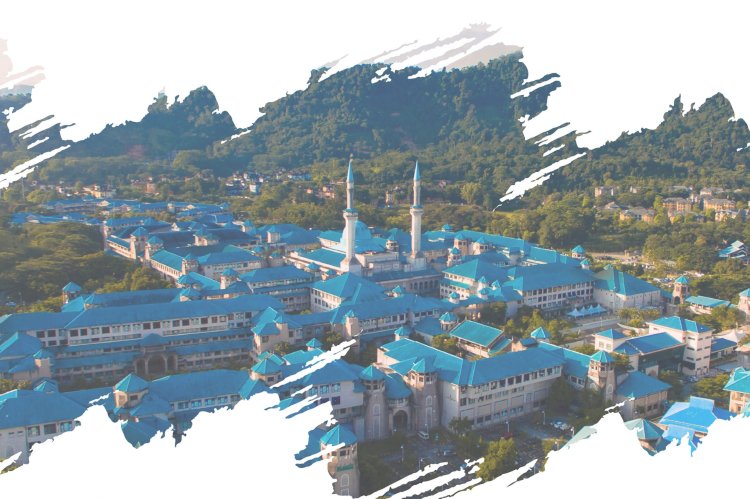


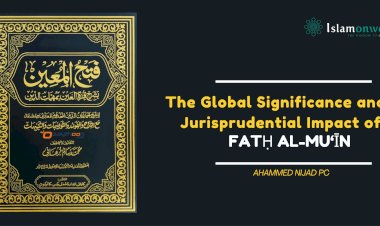
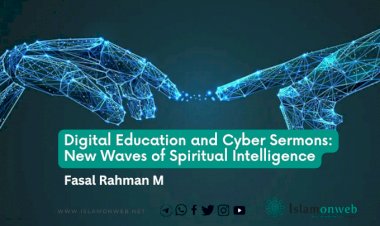
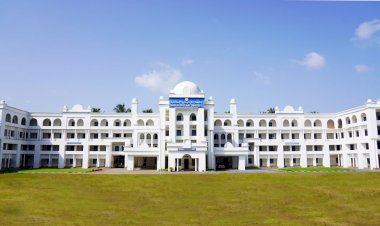
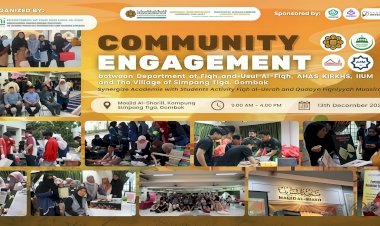
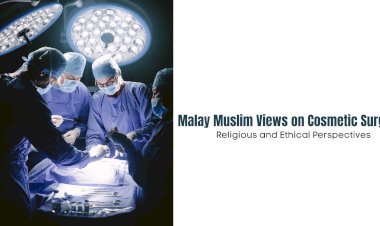
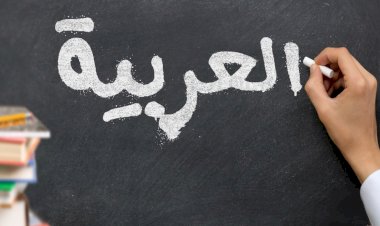














Leave A Comment